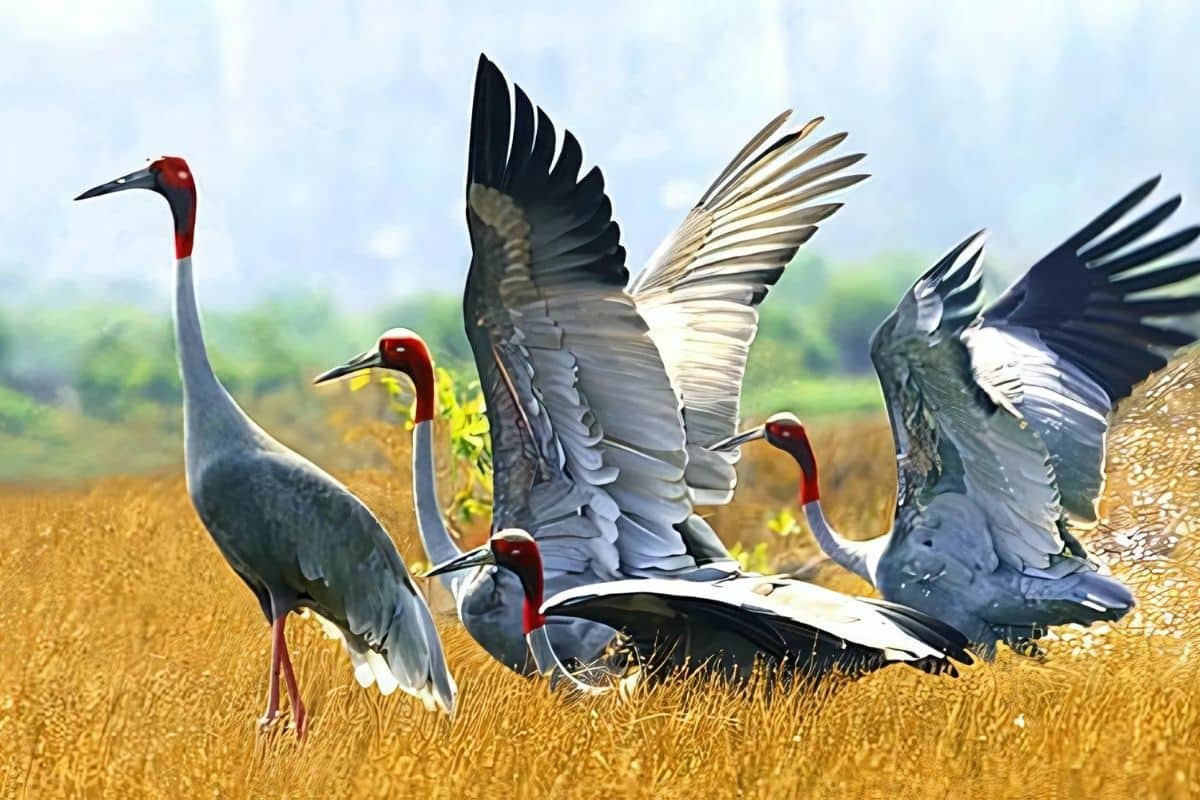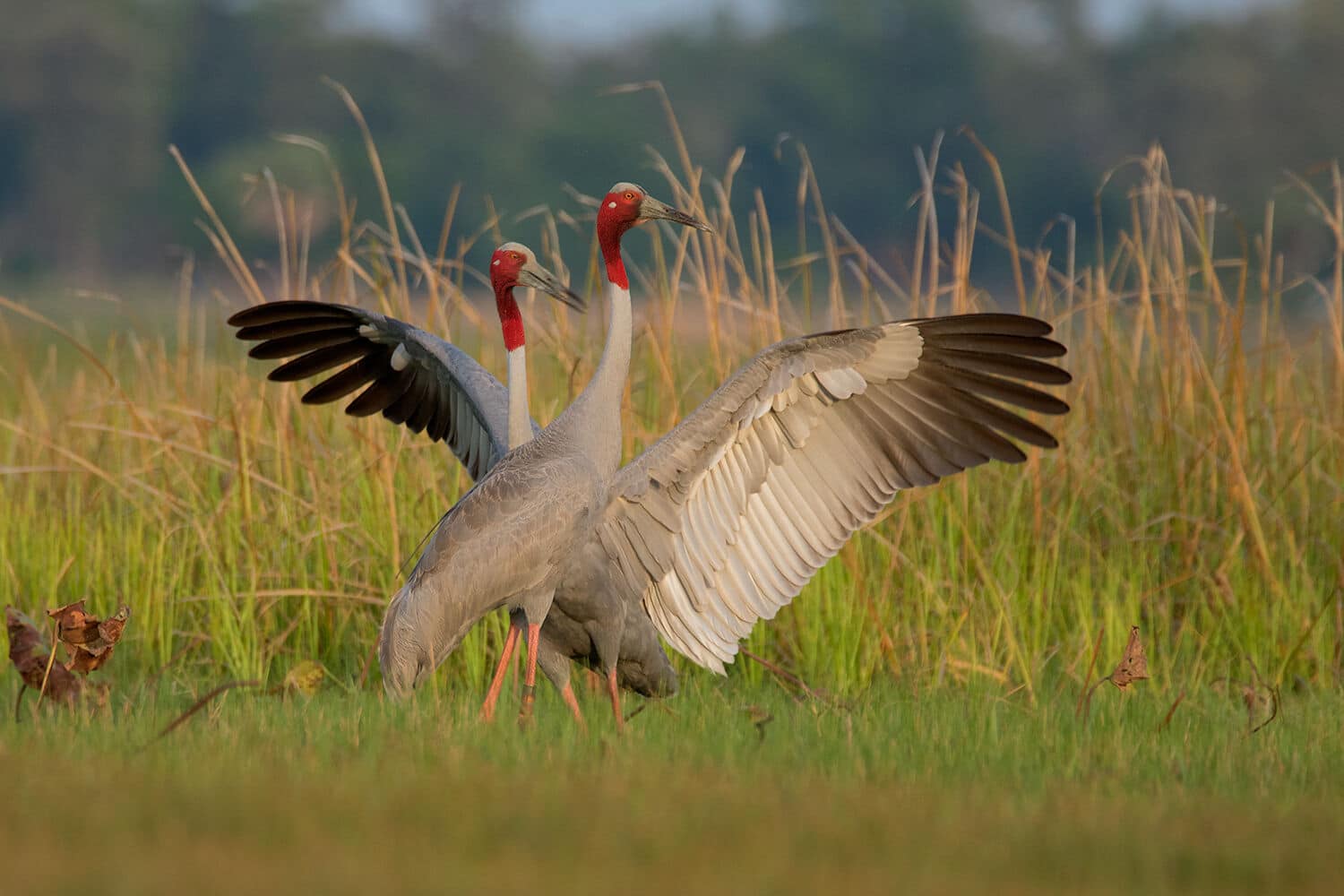Thailand’s sarus cranes arrive in Vietnam for conservation

In a monumental step for wildlife conservation, six sarus cranes have arrived in Vietnam as part of an ambitious project to save the endangered species.
The cranes, flown in from Thailand, were welcomed at Tram Chim National Park in Dong Thap province, Vietnam, on Sunday, April 20, marking the beginning of a significant reintroduction programme aimed at restoring the species to its former glory.
The six cranes, three males and three females, each around seven months old, were bred in captivity at Nakhon Ratchasima Zoo in Thailand.
After a mandatory quarantine period at the Saigon Zoo and Botanical Gardens, the cranes are now ready for relocation to Tram Chim National Park, where they will play a crucial role in the Sarus Crane Conservation and Development Project at Tram Chim National Park (2022-2032).
Jade Donavanik, Chairman of the Zoological Park Organisation of Thailand (ZPOT), expressed his pride in the international collaboration that made this transfer possible.
“This transfer is a reflection of the strong international cooperation in biodiversity and environmental conservation. It shows the commitment of all involved parties to preserving this iconic species.”

The initiative is a joint effort between the Dong Thap provincial People’s Committee, the ZPOT, the Viet Nam Zoo Association (VZA), the International Crane Foundation (ICF), and the Saigon Zoo and Botanical Gardens Company.
The project, launched in December last year, aims to reintroduce 100 sarus cranes to Tram Chim over the next decade, to have at least 50 birds survive and form a self-sustaining wild population.
Le Quoc Phong, Secretary of the Dong Thap provincial Party Committee, hailed the handover of the cranes as an essential milestone in the conservation of the sarus crane. He emphasised that with the ongoing technical, financial, and community support, the project will contribute significantly to preserving Vietnam’s natural heritage.
The sarus crane, listed as a threatened species by the International Union for Conservation of Nature (IUCN), has seen its numbers dramatically decline due to habitat loss. Once abundant in the Tram Chim region, the cranes’ migration has sharply decreased, making this reintroduction effort critical to the region’s ecosystem. The sarus crane also holds profound cultural and spiritual significance in Vietnam, making its conservation a national priority.
As part of the broader programme, Dong Thap has also launched a local conservation team to raise awareness and protect cranes and other wild birds. Several organisations and people were recognised for their contributions, underscoring the importance of collective action in protecting wildlife, reported The Nation.
Latest Thailand News
Follow The Thaiger on Google News:


























